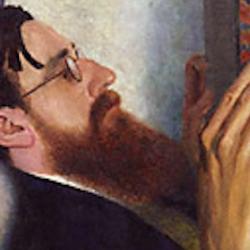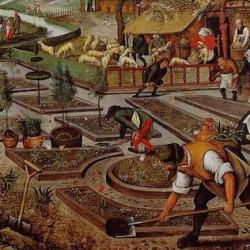In a contribution to a forthcoming collection of essays on Time, David James explores the usefulness of periodization categories like “modern” and “postmodern.” To be sure, some believe that modernism and modernity are passe: “’Many emerging artists,’ reflects Terry Smith, ‘sense that Modernism—no matter how often and subtly it is Remodernized—is past its use-by date.’ This new generation, he continues, moreover ‘regard[s] ‘Postmodern’ as an outmoded term, a temporary placeholder that is no longer adequate to describe conditions that, they believe, have changed fundamentally.”
So “the postmodern no longer gets an epistemic free ride,” and this means that the continuities of modern and postmodern are opened up to scrutiny: “Of all the iconic thinkers of late-twentieth-century society and the postmodern ‘condition,’ Fredric Jameson offered a decade ago significant qualifications to the global paradigm he did so much to engineer as a cultural barometer of time. For Jameson, ‘what is often called postmodernism or postmodernity will simply document yet a further internal break and the production of yet another, even later, still essentially modernist moment.’”
Postmodernism has, after all, often behaved as imperialistically as modernism: “When it comes to the postwar arts, though, the problem is not only postmodernism’s inadvertent affiliation with an era defined by modernist aspirations, but also its association with a limited set of cultural centers. Without due interrogation, postmodern time becomes synonymous with Western time; yet the danger with simply exporting the postmodern, as a condition either for cultural change or for artistic potentiality since 1950, is that it turns into a homogenizing—thereby atemporal—ascription. As Brian McHale observes, reflecting on his own foundational work on postmodern literary history, the ‘unexamined assumption that postmodernist fiction was really one and the same thing everywhere, even when it emerged far from its Euro-American ‘homeland,’ seems indefensible today.’”
Some theorists have opted for a notion of “altermodernism,” but according to Terry Smith, it’s “’is not entirely clear’ whether or not ‘the spirit identified’ in altermodernism ‘is a new kind of Modernism, a reversion to the Modernism first defined by Charles Baudelaire in Paris in the 1850s, or indeed whether it is Modernist at all.’” Art critic Nicolas Bourriaud “reassures us that in our postmillennial era, ‘it is possible to reclaim the concept of modernity without for an instant feeling that it’s a throwback.’”
If James is to be believed, reports of modernity’s demise appear to be exaggerated.















